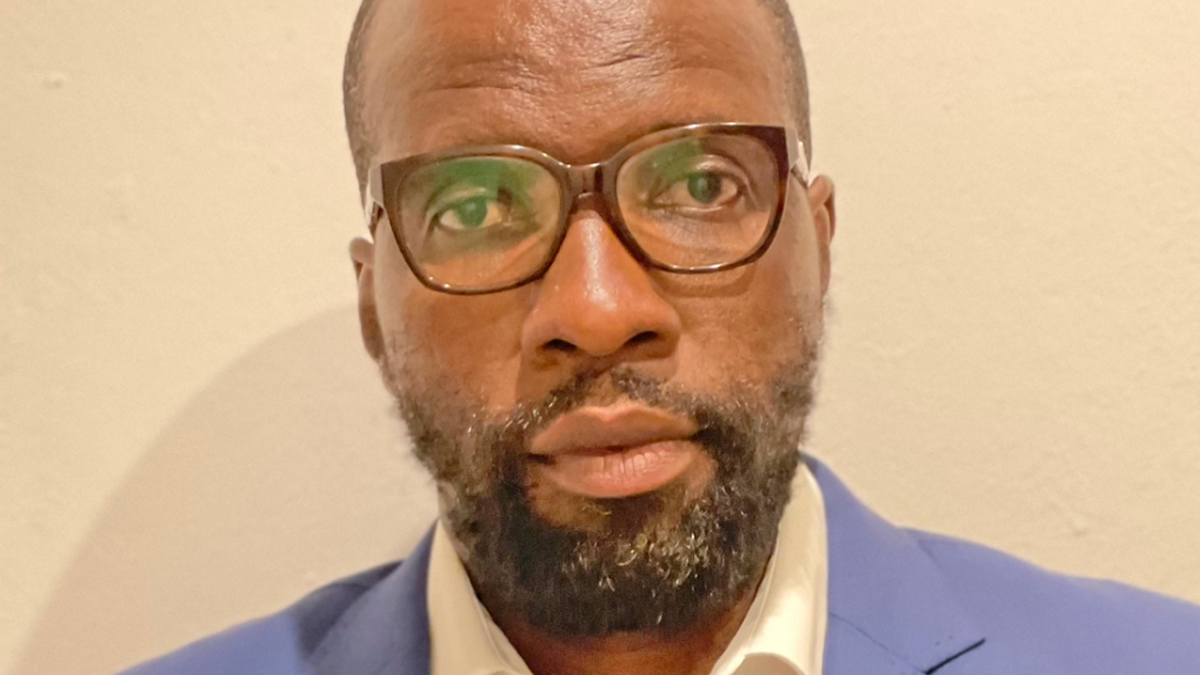Once again the country has been rocked by yet another heinous crime where an obviously troubled man who, instead of seeking counselling or walking out, resorted to not only suicide but ending the innocent lives his own children.
Voice Woman spoke with Consultant Psychiatrist, Dr Moetapele Coach Gasemotse, about mental health, gender-based violence (GBV) and why some men commit murder-suicide.
Dr Moetapele recently formed part of a panel of the Borre ka Dijase – UNITE workshop to discuss men’s mental health and GBV that was hosted by Behavior Change Specialist, Mai Rakwadi Madibela, of 4Points Wellness.
Good afternoon, Doc. Please introduce yourself to our readers.
Good day to you and your readers.
I am Dr Moetapele Coach Gasemotse, a psychiatrist based in Gaborone.
Before delving into the questions, it is important that your readers see this as an educational piece, and not a running commentary on any recent events.
My responses therefore will not be specific to any incident or tragedy as that would not be of value.
Let’s get right into it: what type of person commits such a crime as the one that occurred over the weekend?
As mentioned earlier, it is important that we focus on educating readers and the country at large without adding to the running commentary that we have already seen over the last two days.
But, it is important to make this comment; some people have formed a view that the man involved in the incident from the weekend was clearly depressed, while some are of the view that he was not. What is obvious is that three lives were lost, including two young children.
There is a need to be respectful of the innocent lives lost and those that will forever be affected by this incident.
It is therefore important that destructive comments are avoided to allow families privacy and respect.
To your question, there is no particular ‘type of person’ that commits a murder-suicide involving a family member or any other person. If you were to collect information in such incidents in the country over the last decade, I doubt that you would find a common ‘type’ of a person that defines the perpetrators.
For any incident, even if it does not involve murder or suicide, it is important to ask questions such as ‘why this person’, ‘why now’, and one will find that reasons are not always the same from person to person, and/or between incidents involving the same persons.
What is clear is that people who commit such incidents make decisions that impact not only on their lives, but those of others.
No one reason accounts for why someone commits a murder and/or suicide.
Reasons can include but not limited to feelings desperate, hopelessness, anger – driven by revenge or jealousy – and deliberate intent to hurt someone (one might make threats to kill someone or themselves when their needs/wants are not met).
Again, it must not be read that any of these reasons apply to any recent incident(s).
Between women and men, what gender is more likely to commit suicide? What do the stats show?
The rates of suicide are almost comparable globally.
Men are more likely to commit suicide than women.
Current global data indicate that men are about three times more likely to die by suicide than women.
If you remember from our workshop on Saturday, I mentioned that depression and anxiety disorders occur about two to three times more often in women than in men.
These numbers are skewed because men are less likely to seek help than women.
Something worth noting is that men are overrepresented in rates of drug and alcohol abuse. Suicide attempts by men tend to be more violent and lethal – such as hanging, and use of guns – while women use less violent methods such as taking overdoses and carbon monoxide poisoning. One can see how the above do add up to increased rates of death by suicide in men.
In your experience as a psychiatrist, what are some of the common issues that lead men to commit murder-suicide or intimate-partner violent crimes?
The most common reasons involve relationship issues/breakdown.
They can either be carefully planned or impulsive acts following an argument or altercation.
There is often a pre-existing history of domestic violence in relationships that end in a murder-suicide.
Murder-suicides can also include co-worker, friends, or strangers.
While mental illnesses, such as depression and anxiety disorders, can be found to be contributing factors is some cases, it is worth noting that many studies have demonstrated that people with mental illness are no more violent that you and I.
In addition, having a diagnosis of a mental illness, including depression, does not equate or lead to lack of capacity to make decisions.
People with mental illness form loving families, work in complex jobs, and are able to make autonomous decisions about their finances, jobs, who to love, where to live, etc.
It is therefore very unfortunate that some people immediately and confidently push the ‘he/she was depressed’ narrative into a discussion when a crime is committed.
This takes the world back decades; we already have stigma against people living with mental illnesses, and now some sectors of the public are demonising mental illnesses.
Before long, partners will end relationships because their significant other has been diagnosed with depression. Or an employer terminates an employee’s contract because s/he had an admission at a mental health institution.
What this leads to is reduced rates of people seeking help, leading to increased incidents of people being without appropriate treatment, which eventually reduces productivity at home, and work.
This will affect progress ya malwapa, communities and the country.
Why do suicidal men feel the need to kill partners and children?
The question is misleading.
Not all suicidal men, or women feel the need to kill their partners and/or children. Most suicidal individuals often feel and believe that they are a burden to society, families, or partners.
Most suicidal behaviors are in the context of a situational crisis where one does not see a way out, and believes that life is no longer worth living.
As mentioned earlier, murder-suicides that involve relationships are often in the context of such relationships failing.
“Murder doesn’t turn into a mental illness just coz re tsentse suicide at the end to be murder-suicide!”… You shared this opinion on Facebook yesterday, please clarify.
My post was driven by seeing an increasing number of people pushing the narrative of depression being the cause and ‘to blame’ for the tragedy that happened on Sunday.
Social media posts reach far many people these days, and such misleading and misinformed posts and discussions can affect many people.
A murder is a murder; when one chooses to end someone’s life, it is murder. If the perpetrator is caught, he/she is charged with murder, period.
If a perpetrator ends his life before being caught, it does not automatically mean he/she had a mental illness.
Passing judgments and making diagnoses without relevant information is dangerous and very misleading.
I often say, “ha o sa itse didimala”, because misinformation is far worse than no information at all.
What are the various types of mental disorders in perpetrators of familicide/murder-suicide?
People suffering from mental health disorders are no more likely to commit violent acts such as familicide and murder-suicide than the general population.
It is therefore dangerous to attempt to provide a list of mental health disorders in perpetrators of such crimes, just as it is dangerous and unhelpful to try and define the type(s) of people who would kill partners and/or family members.
This shifts the focus away from individual accountability to placing the focus of mental illnesses and their roles in perpetrators.
As mentioned earlier, a mental illness does not automatically make one less able to have capacity to make decisions.
What signs of depression can one look out for in a partner?
Signs of depression include, but are not limited to: feelings of sadness, reduced appetite, sleep and appetite changes, reduced energy and motivation, poor concentration, sexual dysfunction (including reduced sex-drive), and suicidal ideations.
But please note, these signs/symptoms overlap with other illnesses, including physical health, drug and alcohol use, side effects from medications, and general life stressors.
So, the presence of any of these does not mean that your partner or friend is depressed.
It is therefore vital to avoid Dr Google and corridor or Facebook and other social media driven diagnoses, and seek help from your nearest clinic or hospital.
A ‘disturbing’ narrative is becoming apparent in our society, where some men express feeling burdened by the expectation to be providers. Why is that?
Unfortunately, there is no one or quick answer.
Some of the contributing factors are cultural, religious, and societal pressures. Most societies believe that a man should provide, the “indoda must” drive.
Times have changed; women are as able as men to provide in a relationship.
There is a need to teach our children, both male and female, that no gender is better than the other at providing.
Families have become more diverse with same sex partnership.
If two men are in a relationship, what happens? Or where two women are in a relationship, they survive without finding a man to join them and provide.
Are most men struggling to cope with the harsh economic environment?
Harsh economic environments affect everyone.
There are single mothers out there doing it though, just as there are single fathers struggling to make ends meet.
There are families where the woman is the breadwinner, le bone ba a sokola hela jaaka men-led families.
Everyone can struggle to cope, hence it is vital to check on family and friends regularly.
“Mental health is real”. But many social media users did not disappoint with their insensitive commentary. In light of this, would you say we are losing the fight against stigma?
It has taken decades to attempt to reduce stigma against mental illness.
The stigma is not only on social media or the community, it occurs even within hospitals and from health professionals.
So, yes, some narratives on social media and the community are not helpful in the fight against stigma. Education is key, and those who can, need to take time to educate.
This calls for action and commitment from individuals, parastatals, businesses (Debswana has demonstrated a passion to start these conversations), and the government.
Lastly, what advice can you give to men facing challenges in relationships or marriage?
Men are very poor when it comes to seeking help.
Shame of being seen as a failure drives most of these decisions to persist and persevere.
The same applies to women.
People need to make decisions based on the now.
Just as it is okay to get married or be in a relationship, it is okay to leave a relationship when being in one is more painful.
Societal pressures make people believe that they would be failures in life ha ba sa nne le bana, be in a relationship, be married, or if they choose to end a relationship.
Unfortunately, manokonoko are a poor and toxic relationship are felt by the individual and not the society, and in most cases the affected are often the children who end up witnessing unhappy parents engaging in conflicts and fights.
Most people often stay in it for bana; evidence shows that children prefer a happy parent (even if they live apart) than two unhappy parents living together.
Unhappy families and domestic violence increase risk of anxiety in children.














How does any man/woman or child find help? We all know of a mentally unwell person/s within our communities….where is the help and how do we access it?